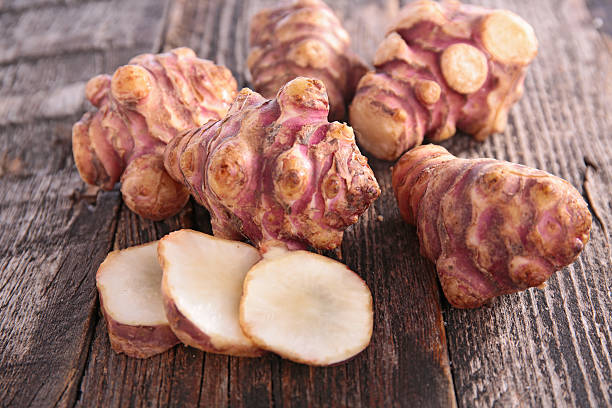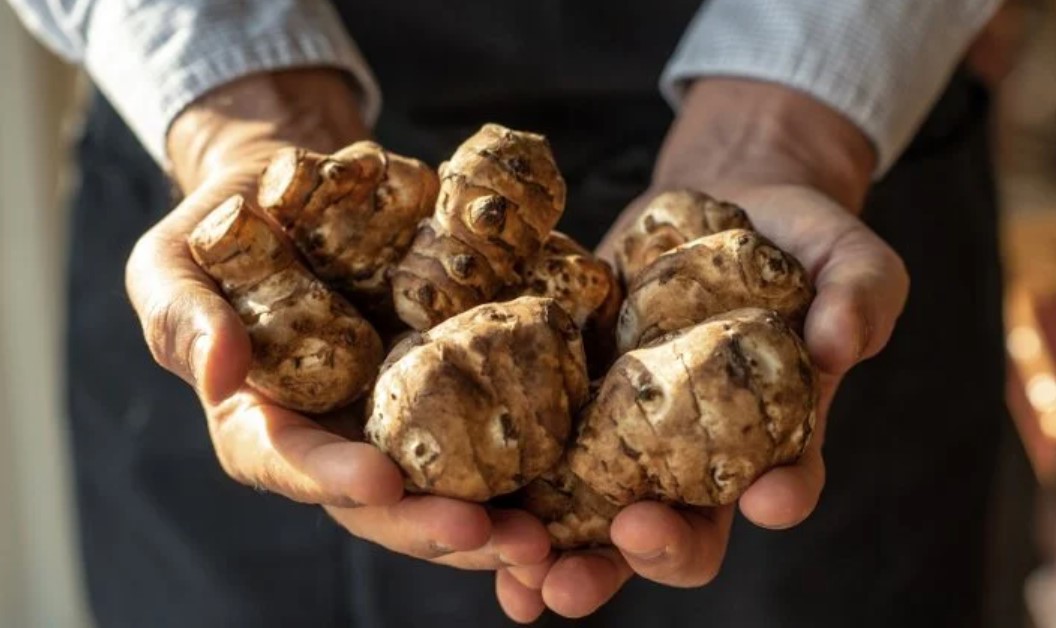American in origin, Jerusalem artichoke is not only a delicious root vegetable, but also a wonderful cure for many diseases. How much do you know about Jerusalem artichoke?

- This vegetable has been known to mankind for thousands of years. His homeland is North America. Even today, thickets of wild types of Jerusalem artichoke occupy vast areas. It came to Europe more than 400 years ago – it was brought here by the Spanish conquerors. The root crop owes its name to the Jerusalem artichoke province, where it was a very popular crop among the Brazilian Indians.
- By the way, Jerusalem artichoke is the closest relative of the well-known sunflower: its official name is “tuberous sunflower”. Our plant is called “earthen pear” – the roots really look like a sweet fruit.
- With the juice from Jerusalem artichoke tubers, the tubers themselves and a decoction from the stems of the plant, our ancestors treated wounds and burns, pain in the joints and spine, insomnia, poor appetite and loss of strength.
- Modern scientists, having studied the composition of Jerusalem artichoke, were pleasantly surprised by the variety of nutrients it contains. The root vegetable is rich in a whole range of vitamins, in particular ascorbic acid and B vitamins, mineral salts of potassium, zinc, iron and silicon.
- Also in tubers there is a lot of protein, sugar, pectin substances, organic acids. But what is especially valuable, Jerusalem artichoke contains a plant analogue of human insulin – the polysaccharide inulin (it promotes the utilization of glucose in the body and the restoration of the liver). Thanks to this substance, the immune system is strengthened, the skin heals, excess weight goes away.
- In addition, inulin is a powerful medicine for hypertension, coronary heart disease, anemia, stomach ulcer, and eczema. And the juice from Jerusalem artichoke tubers has long been recognized as an indispensable tool for the prevention and treatment of diabetes.
- Moreover, there is evidence that the external and internal use of fresh juice from Jerusalem artichoke tubers helps restore pigmentation in vitiligo!
- Jerusalem artichoke herb has medicinal properties in the initial stage of flowering (August-September), as well as roots, which are dug up after the plant wilts (in September-October) or in spring after thawing of the soil. The ground part is preserved or dried, like all herbaceous plants. Root vegetables are stored in cellars like potatoes.
- Jerusalem artichoke is boiled, fried, stewed, baked, pickled, stuffed, but the most useful is a salad made from fresh root vegetables. The French believe that Jerusalem artichoke tastes like an artichoke.
- It is useful to prepare for future use a powder from Jerusalem artichoke tubers to use it as a seasoning for various dishes, as well as for making sauces, gravy and medicinal drinks. To do this, carefully washed tubers are cut into thin slices, dried at room temperature or in an oven at a temperature not exceeding 70 degrees, and then ground in a coffee grinder or mortar. Store the resulting powder in a glass jar with a tight-fitting lid.
- Eat Jerusalem artichoke raw to maximize its beneficial properties.




